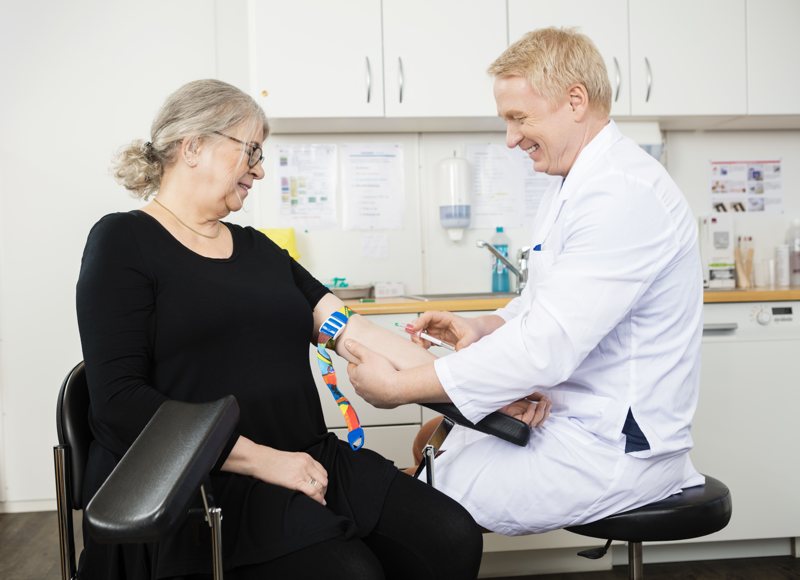Top-Rated Northeast Medical Institute Phlebotomy Training Stamford: Hands-On Knowing Experience
Top-Rated Northeast Medical Institute Phlebotomy Training Stamford: Hands-On Knowing Experience
Blog Article
Important Aspects to Take Into Consideration When Picking one of the most Suitable Medical School Curriculum for You
Selecting the most fitting clinical school educational program is a crucial decision that can significantly affect your academic trip and future job course. As striving physician, the choice of educational program need to align with your personal knowing style and profession goals. However, past these initial considerations, various essential factors come into play when making this selection. By discovering the nuances of teaching approaches, curriculum versatility, and professional direct exposure chances, a much more comprehensive understanding of what makes an educational program ideal for you emerges. Allow's explore these critical components that can shape your clinical education and ultimately, your professional trajectory.
Personal Discovering Style

Medical institutions that provide varied training approaches and sources can accommodate numerous discovering designs, promoting a inclusive and dynamic instructional environment. Eventually, recognizing personal discovering choices empowers students to make educated choices concerning their medical education and learning, establishing a strong foundation for their future professions in health care.
Job Objectives Alignment
In addition, lining up profession objectives with the clinical institution curriculum can additionally improve motivation and engagement throughout the instructional journey. When trainees see the direct relevance of their coursework to their future profession, they are most likely to stay concentrated and dedicated to their studies. As a result, when picking a medical college curriculum, it is essential to carefully think about how well it lines up with one's career goals to make certain a successful and fulfilling specialist path.
Mentor Methodologies
Thinking about the placement of profession goals with the picked clinical institution educational program, an examination of the mentor techniques employed ends up being critical fit the discovering experience. The performance of a clinical college curriculum heavily counts on the training methodologies used by the establishment. Numerous teaching methods, such as lectures, small team conversations, problem-based learning, simulation-based training, and hands-on medical experience, can substantially influence just how well students maintain and realize information.
Simulation-based training allows trainees to practice medical skills in a regulated atmosphere before interacting with actual individuals. Hands-on medical experience offers a firsthand understanding of patient treatment and clinical techniques.
When selecting a medical college educational program, striving students should consider the training approaches employed to make certain that their discovering preferences and staminas align with the instructional method of the establishment.
Curriculum Adaptability
When assessing clinical institution programs, analyzing the degree of educational program versatility is important for possible students seeking a customized academic experience. Educational program flexibility describes the level to which trainees can individualize their knowing courses within the medical college curriculum. An educational program that provides adaptability allows trainees to seek their interests, concentrate on locations where they need a lot more support, and participate in discovering experiences that straighten with their career goals.

Potential clinical pupils should consider exactly how a clinical college's curriculum flexibility lines up with their discovering choices, career aspirations, and personal goals. By selecting a program that uses the appropriate balance of structure and flexibility, trainees can enhance their instructional experience and prepare themselves for effective jobs in medication.
Medical Exposure Opportunities
Discovering the functional application of medical knowledge, professional direct exposure opportunities play a crucial duty fit a detailed medical education and learning. These chances offer pupils with very useful hands-on experience in actual health care settings, permitting them to bridge the void between concept and method. When considering content clinical institution educational program, the high quality and quantity of clinical direct exposure should be carefully why not check here reviewed.
Efficient professional exposure should use a diverse array of experiences across different specialties, ensuring that pupils are exposed to different clinical scenarios and individual demographics. Direct exposure to outpatient centers, inpatient wards, medical theaters, and emergency divisions can help trainees establish an all-around understanding of various facets of health care distribution. Additionally, opportunities for community-based treatment and communications with underserved populations can promote a much deeper appreciation for the social factors of health.
Additionally, the presence of helpful professors and mentors during these medical experiences can dramatically enhance the knowing process. Faculty support and positive responses can help students review their scientific experiences, recognize locations for renovation, and enhance their medical skills and decision-making capabilities (Northeast Medical Institute CNA Classes Near me Stamford). On the whole, durable professional direct exposure possibilities are important for preparing future physicians to deliver quality patient care efficiently
Final Thought
To conclude, when choosing a medical institution curriculum, it is vital to consider your individual discovering design, alignment with occupation goals, instructing approaches, curriculum adaptability, and clinical direct exposure possibilities. These aspects play a critical here are the findings duty in figuring out the most suitable program for your educational and specialist growth. Make certain to completely evaluate each facet to make a notified decision that will certainly best sustain your growth in the clinical field.
Understanding one's individual knowing style is critical when choosing a clinical college curriculum. By recognizing one's discovering style early on, aiming medical pupils can tactically choose an educational program that caters to their staminas, inevitably boosting their discovering experience and academic success.
When reviewing medical college programs, evaluating the level of curriculum adaptability is crucial for potential pupils seeking a tailored instructional experience. Curriculum versatility refers to the level to which trainees can individualize their knowing courses within the clinical institution educational program.In conclusion, when choosing a clinical school curriculum, it is vital to consider your personal knowing style, positioning with profession purposes, showing methodologies, curriculum adaptability, and clinical exposure chances.
Report this page